Explore the Forest, then Replicate It
Floods became a seasonal disaster experienced by the community in Sumberklampok Village. Over time, this disaster got bigger until the worst happened at the end of 2021, which caused several houses to be damaged. Those who live near the forest also experience a crisis of access to clean water. Even more days, the drought present made the water crisis increase.
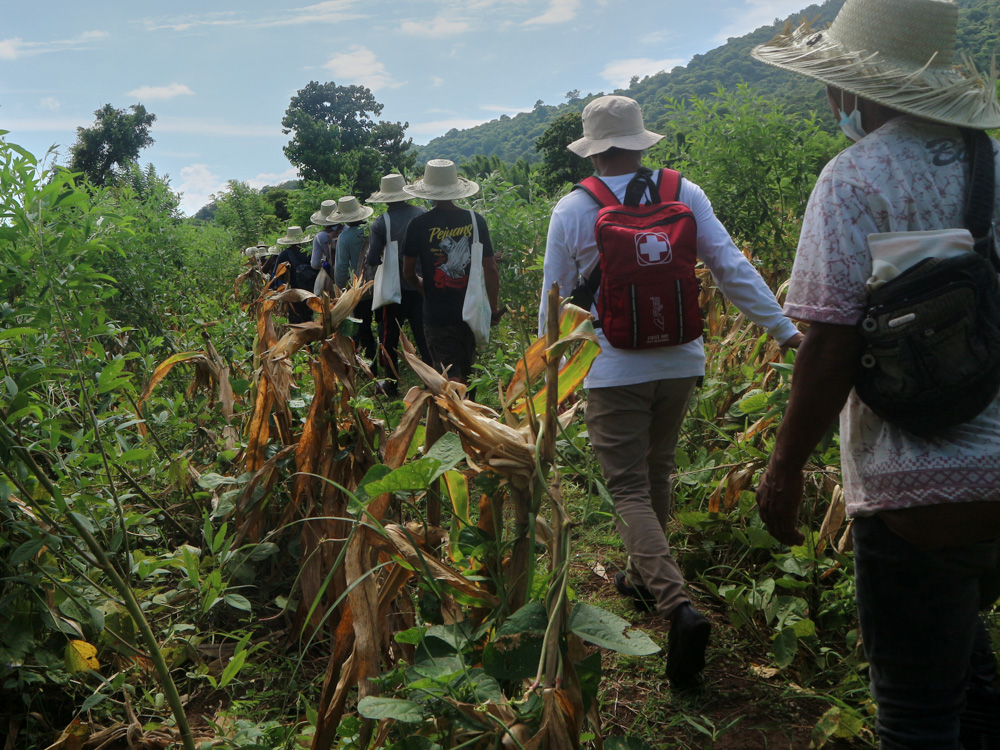
Passing the citizen plantation before entering the forest (Photo: Eka Dharma)
Disasters that are often accepted by the Sumberklampok community also make them have to rethink mitigation efforts. Moreover, most people work as farmers. "At first, I was afraid here [garden]. The land runs away. When the land was ready to plant, I put corn and bean seedlings here, but all beans disappeared due to floods and landslides, "said Rudi, a farmer from Sumberklampok.
The Concept of Food Forests that Have Been Present
Unstable land apparently can be resolved slowly by Rudi. He planted bamboo along the dried river banks. "It was around 15 years ago I planted bamboo. Besides being able to hold back the land, I can also use bamboo for Upakara, "Rudi added.
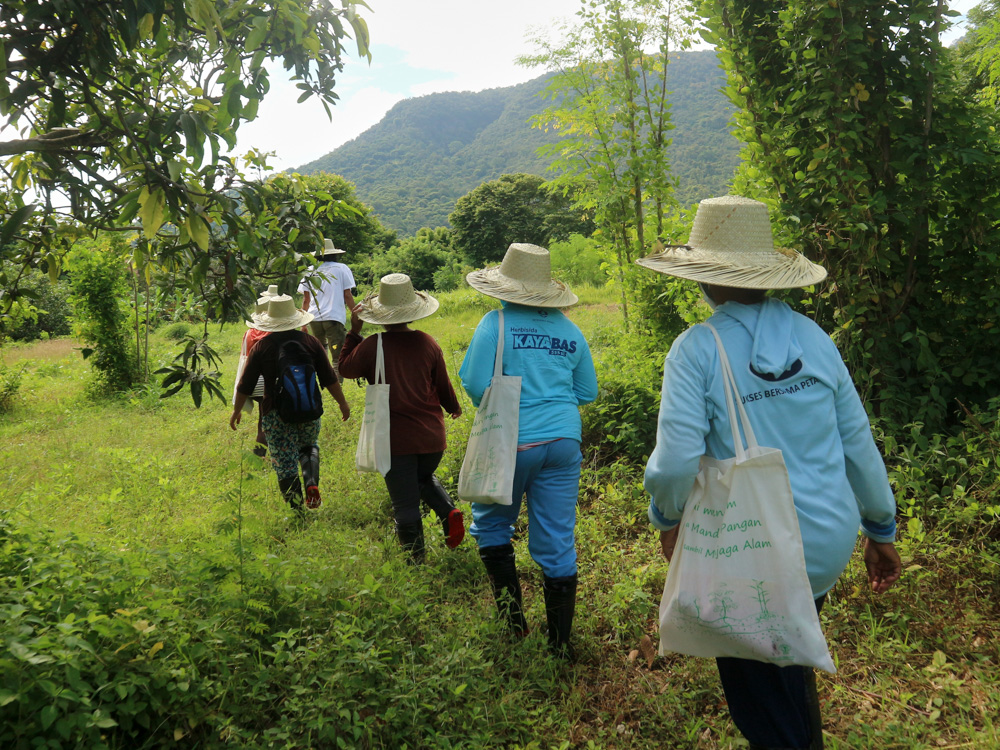
Resting in Rudi Gardens (Photo: Eka Dharma)
In addition, Rudi also plants various types of fruit, food, and flowers. Everything he planted also had its respective functions, like the presence of flower plants that can invite bees, butterflies, and other insects to help the pollination process. Then the variety of plants in Rudi gardens has a better impact on ecosystems because it can reduce the use of chemicals, and food chains can work. "Pak Rudi has proved the principle of Permaculture here, about plant diversity. He combined food commodities and trees for conservation," explained Roberto Hutabarat, who assisted the community in Sumberklampok.
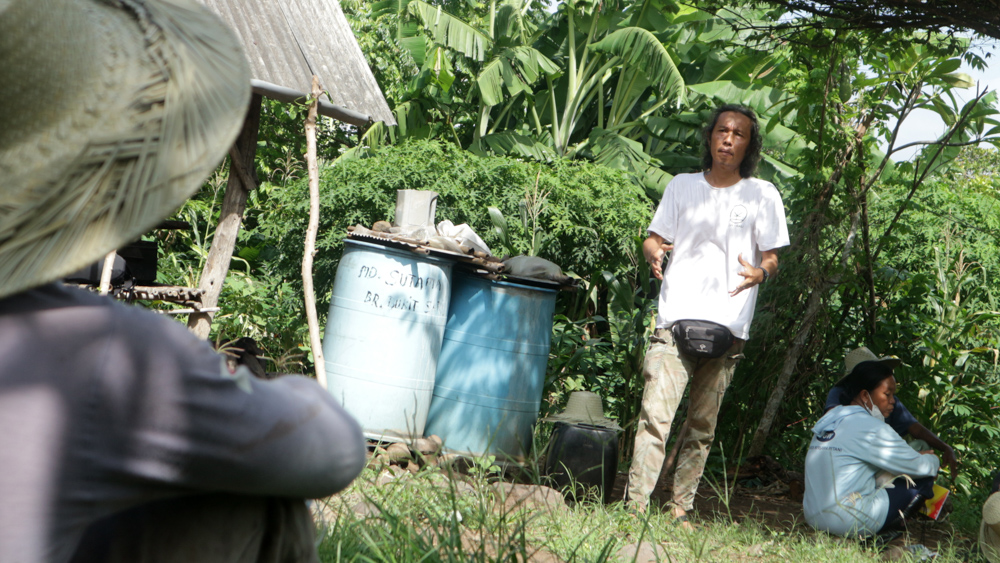
Roberto Hutabarat explained the concept of food forest (Photo: Eka Dharma)
Roberto Hutabarat also added that the community in Sumberklampok has had the awareness to apply Food Forest Permaculture. Food forests are a step pursued by the local community, especially those adjacent to the forest.
Explore the Forest to Learn It
It's been approximately 20 years old, and the community in Sumberklampok coexisted with the forest after returning from the transmigration program in East Timor. They have tried to adapt, survive, and build a life.
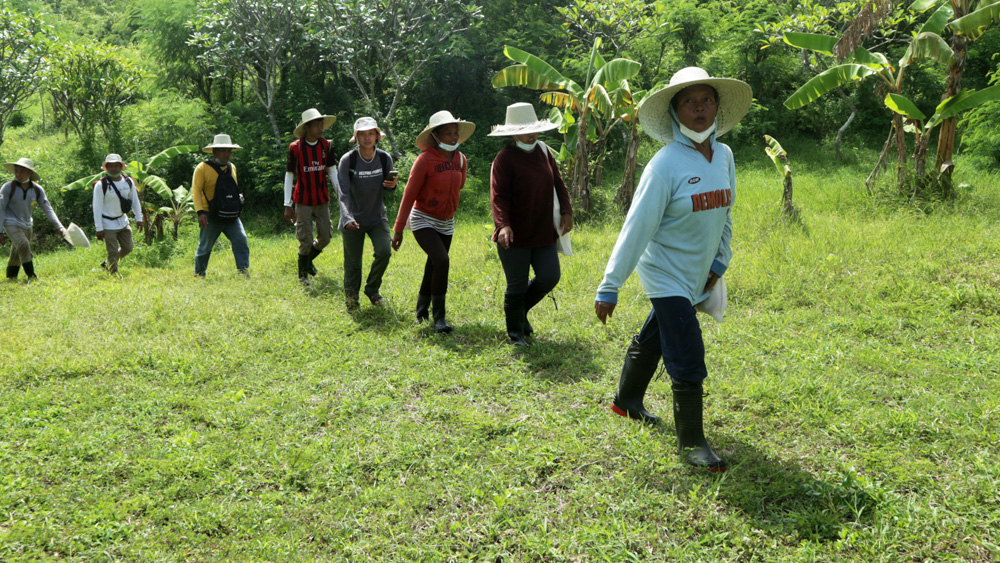
Start entering the forest (Photo: Eka Dharma)
For decades, living side-by-side with the forest has made the public understand the condition of the forest and its impact on the population area. However, when the community decided to build a food forest on collective land near Subak Temple, they started to learn deeper about the forest. This plan emerged when the community slowly realized the importance of forests to maintain ecosystems and natural resources.
There are efforts to learn more about the forest, starting with the activity of exploring the forest held on Thursday, February 24, 2022. "Today, we explore the forest, looking for local resource potential and plants that can be published in our nursery," said Roberto Hutabarat.
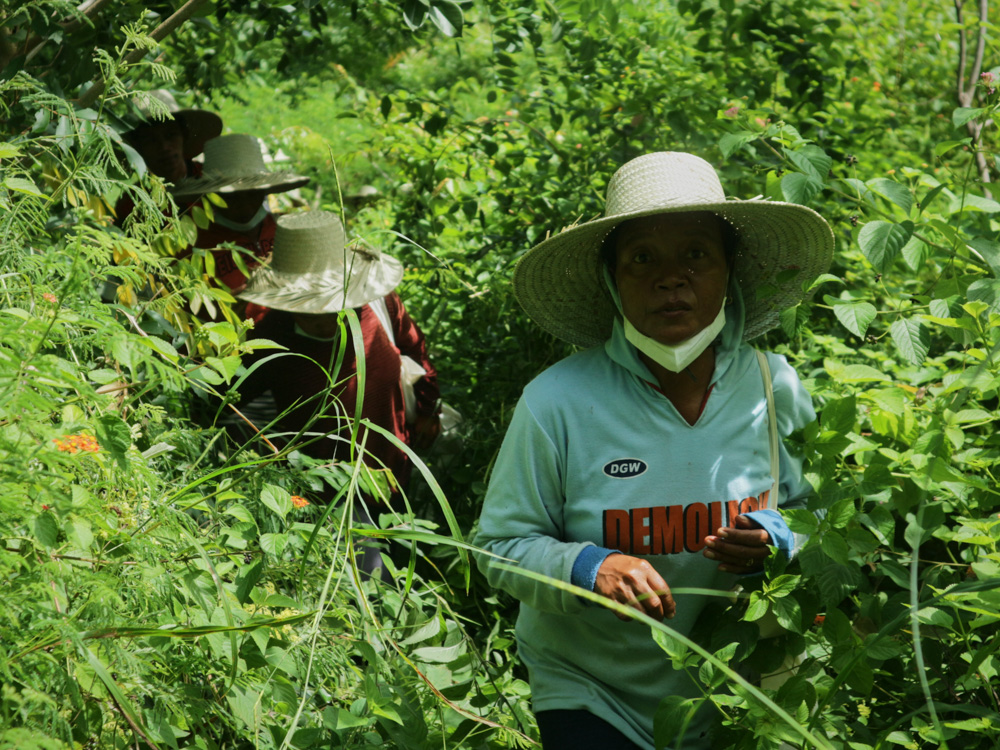
Passing through the forest area covered in loss of plants (Photo: Eka Dharma)
Exploring the forest is taken around two hours with a climbing road. The community felt a different atmosphere when they entered the forest. Mr. Jenggol, forest honey seekers, guides them. He also helped open the way and showed several trees in the forest.
Most people have visited the forest several times but have not yet thought of adapting the forest system in their garden. "When I was a child, I often went to the forest, and there was a water source. If it rains, there is water on the river. So we came to the water source in the forest because I'm curious about the river, "said Suweca.
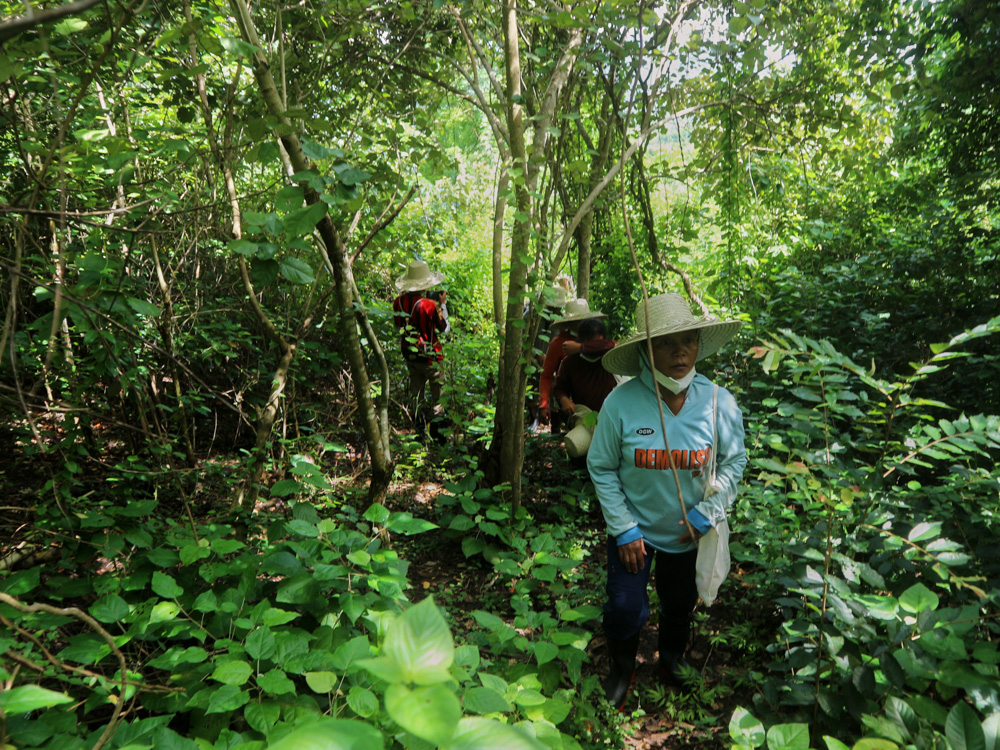
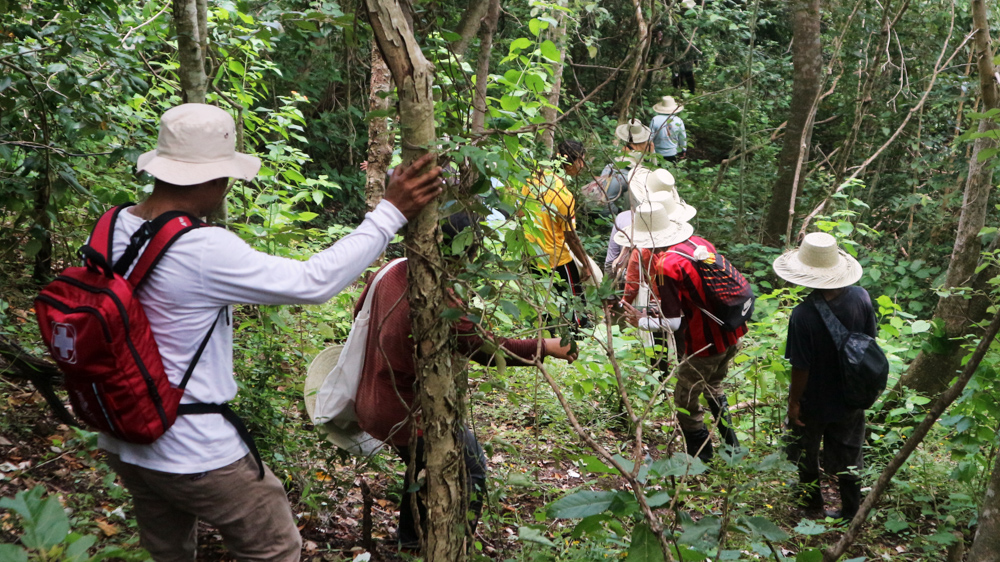
Enter the forest with uphill and declining roads (Photo: Eka Dharma)
Along the way, the community takes seeds and seedlings. They put them in the bag one by one and ask each other about the types of plants they encounter. They were busy with questions about the kind of plant, its functions, and previous forest conditions.
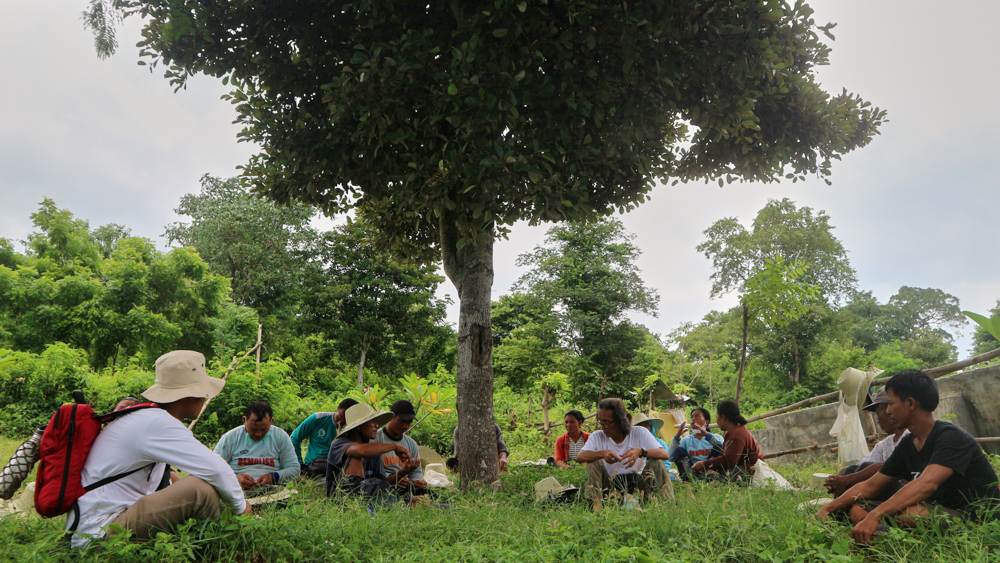
Gather and rest in the Pura Subak area (Photo: Eka Dharma)
After traveling around 3 km, the community arrived at the finish point: Subak Temple. "In this Subak Temple, there is the nursery. So we can directly plant seeds or seedlings that we get in the forest," explained Roberto.
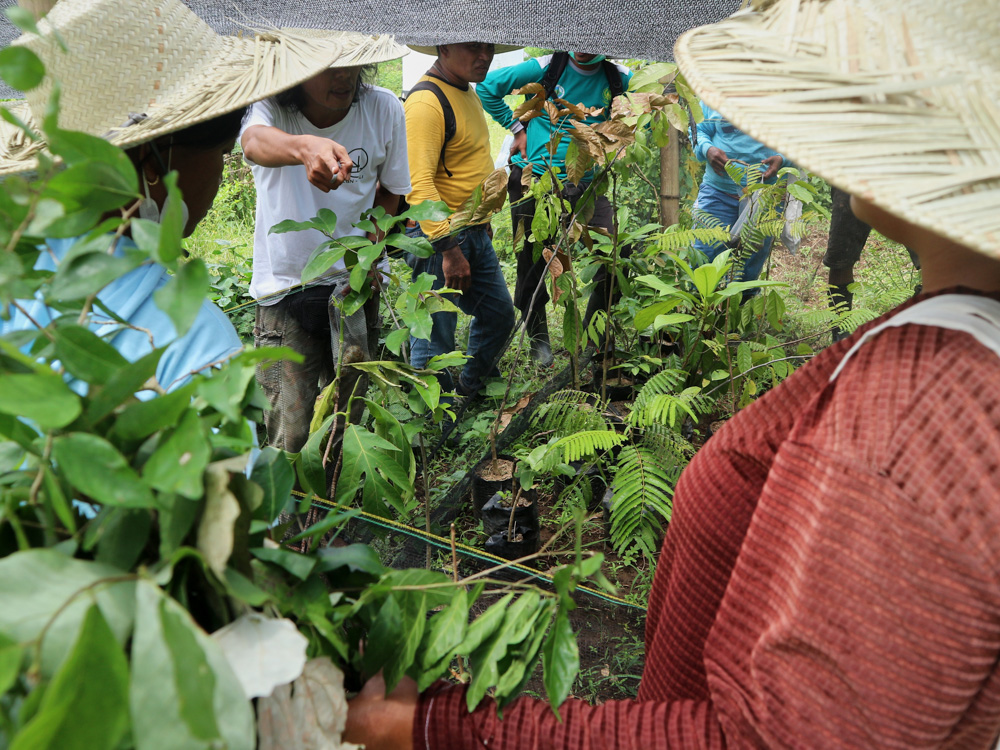
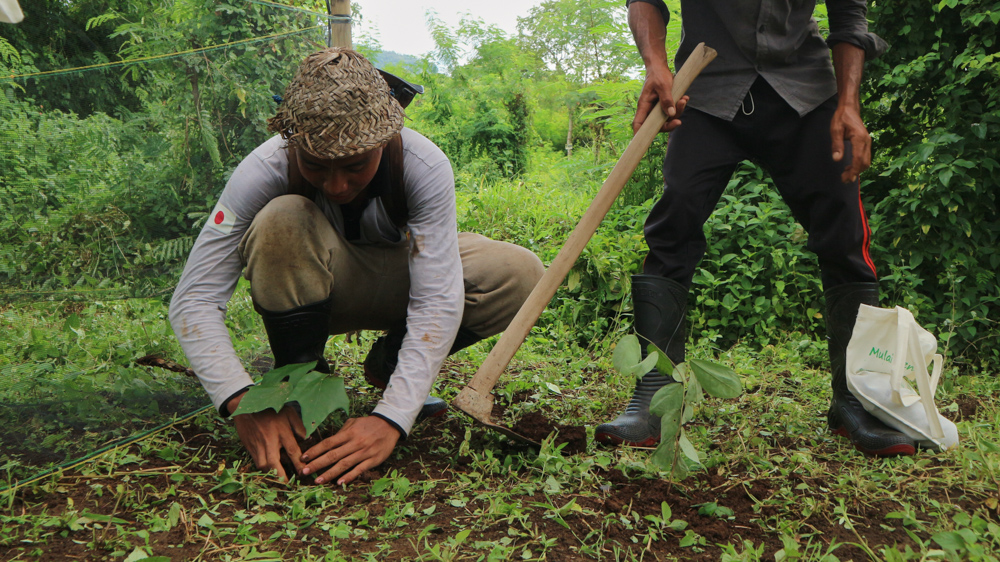
Planting seeds obtained from the forest (Photo: Eka Dharma)
The community began planting seeds and seedlings from the forest. Plants from the nursery will be brought to land for food forests. It will be managed collectively and with self-help by the community to community, animals around the forest and livestock, and nature themselves. (Gd)
Subscribe to IDEP Newsletters
Give a gift that will change lives. 100% funds charity projects.
|






